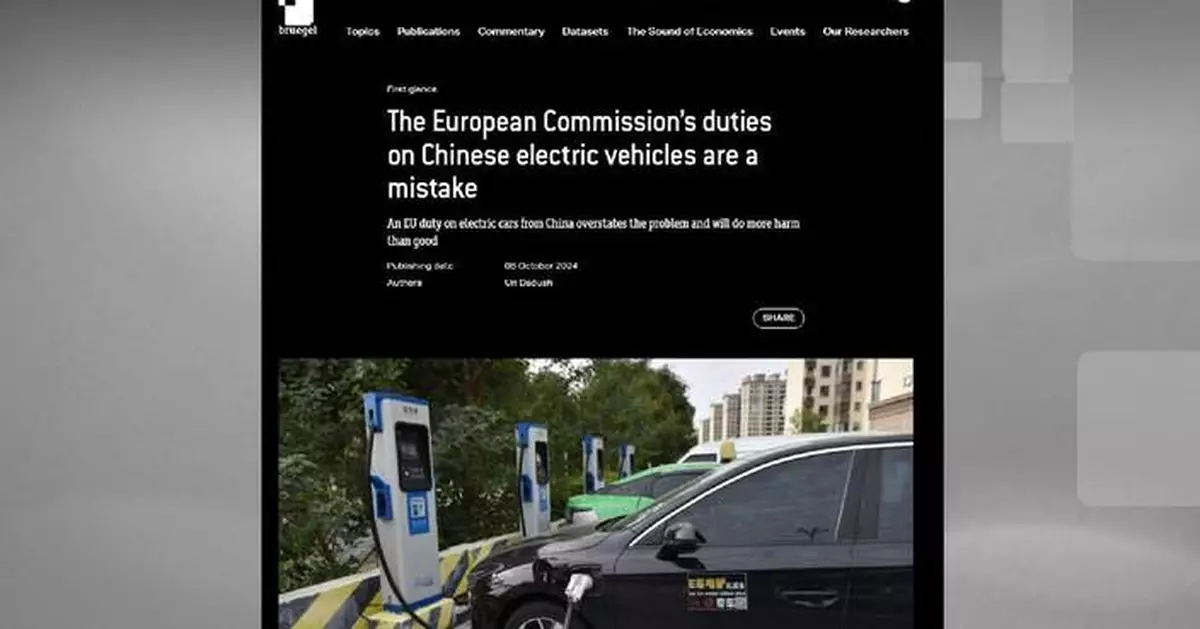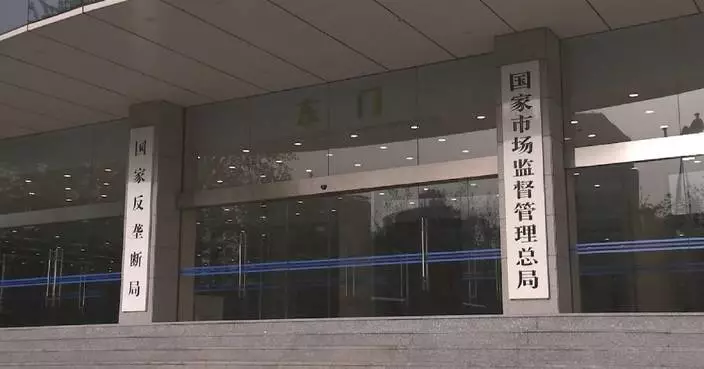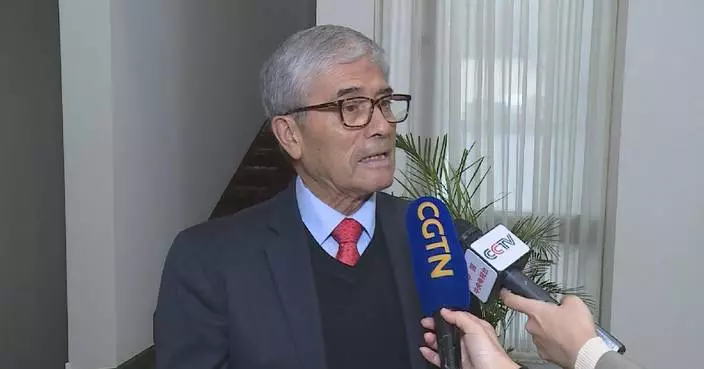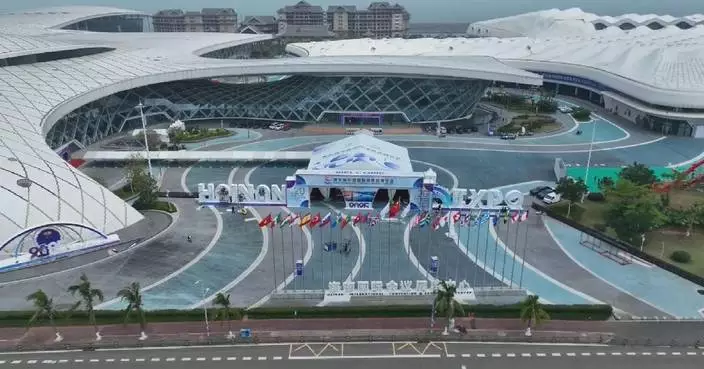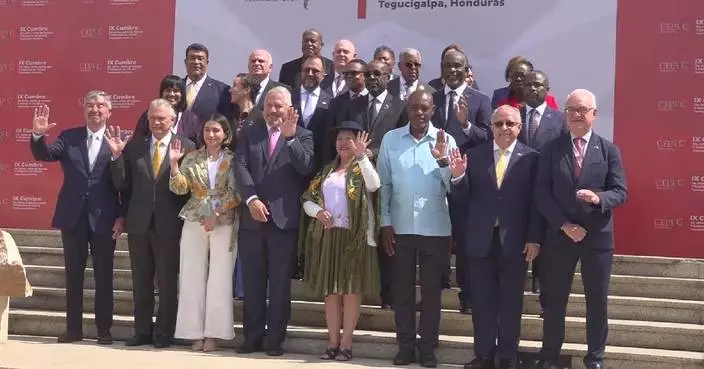The European Union's (EU) punitive tariffs on Chinese battery electric vehicles (EVs) are a shortsighted mistake that will do more harm than good and will trigger multiple negative effects on the global auto market, the Brussels-based economic think tank Bruegel said on Wednesday.
The European Commission announced on Oct 4 that it passed a vote to impose punitive tariffs on Chinese EVs, sparking criticism from several European countries and auto industries who warn the move could boomerang against the EU's competitiveness.
Uri Dadush, a researcher with the institute, said in his article published Wednesday that the additional tariff "overstates the problem and will do more harm than good", and will ultimately backfire on the European auto industry.
The article quoted industry insiders as saying that many of the Chinese EVs are produced in joint ventures with EU and US automakers, and the price and quality advantages reflect the advantages of China's related industries in economies of scale, labor costs, battery technology and materials, as well as the full competition and first-mover advantage among Chinese manufacturers.
Dadush said that the high price of EVs in Europe hurts all consumers, especially those with low incomes. Once the EU imposes tariffs on Chinese EVs, many EU citizens, especially those in rural areas, who are willing to make their cars more green and environmentally friendly will find it difficult to achieve their wishes.
The tariff will have also three negative long-term effects, according to Dadush.
First, it may lead to countermeasures from China. China has brought relevant anti-subsidy measures to the WTO dispute settlement mechanism, and the EU may lose the case, as the reasons for the European Commission's request for high tariffs are untenable, and this conclusion has long been a consensus in the industry.
Second, the imposition of tariffs will weaken the motivation of EU electric vehicle manufacturers to cut costs and continue to innovate, as EU automakers still need to compete in China and other fast-growing markets, and the prospect of them gradually falling behind is real.
Third, such decision marks a trade split and further "decoupling" between the Western world and China, leaning to more economic costs uncertainties. "It's not too late for the EU to change its mind," said Dadush in the article.
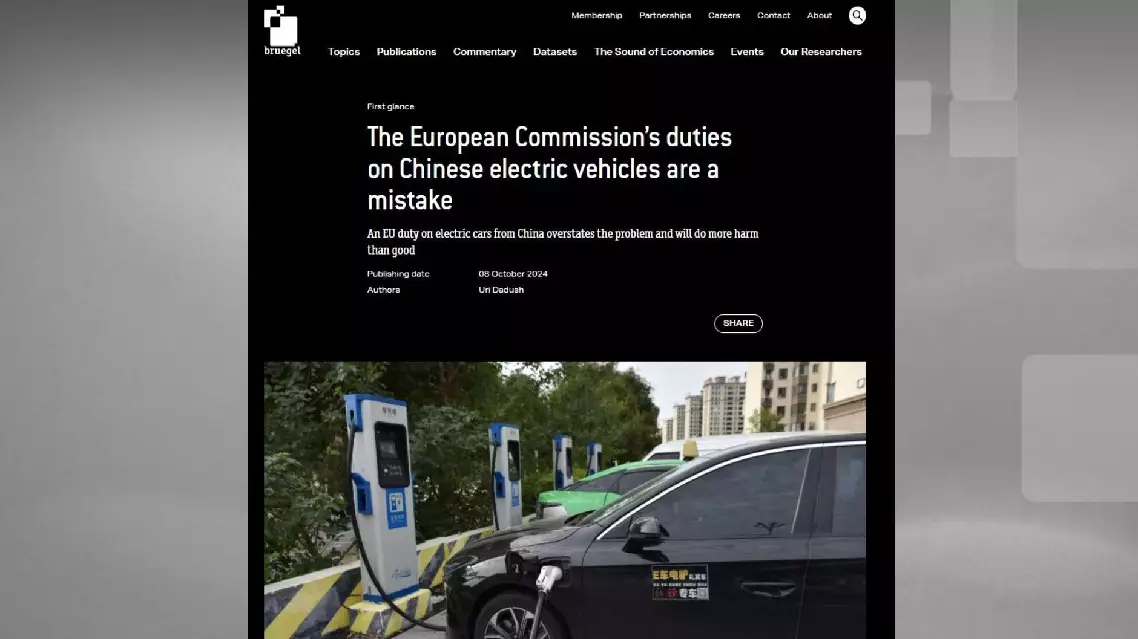
EU's punitive tariffs on Chinese EVs do more harm than good: think tank
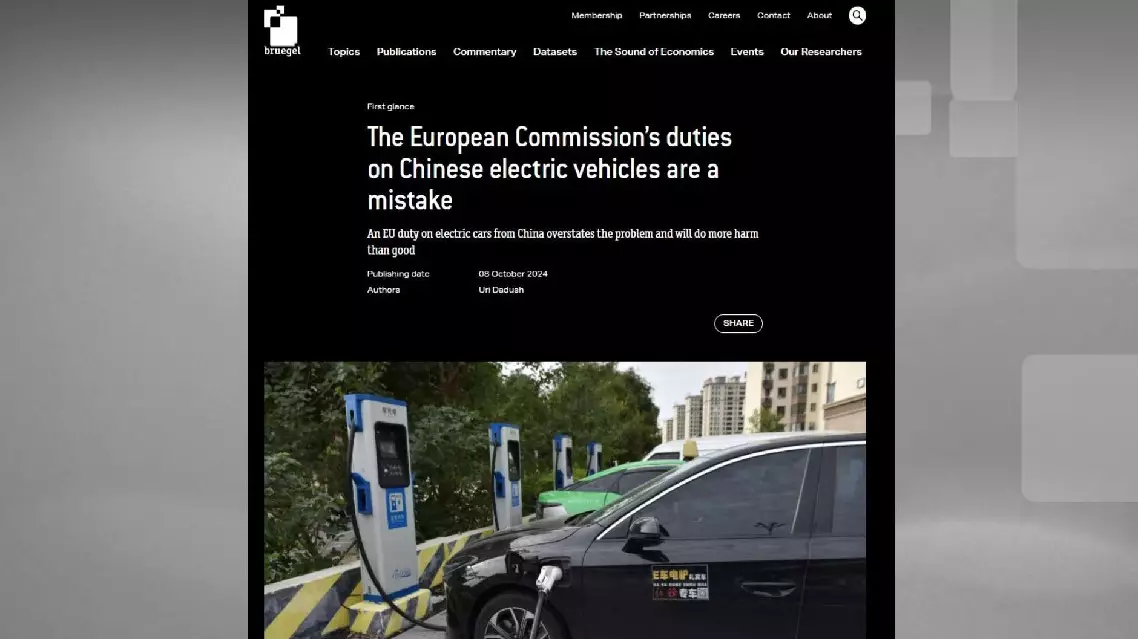
EU's punitive tariffs on Chinese EVs do more harm than good: think tank
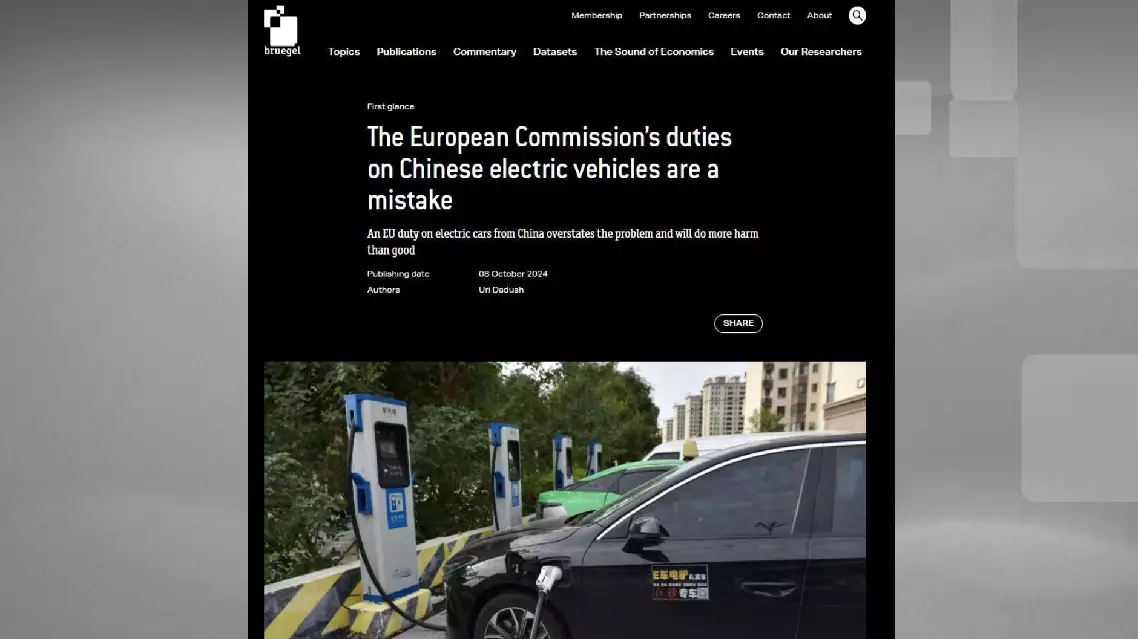
EU's punitive tariffs on Chinese EVs do more harm than good: think tank
A conference on sustainable development cooperation among Shanghai Cooperation Organization (SCO) member states concluded with the signing of 18 key projects worth a total of 4.795 billion yuan (about 655.5 million U.S. dollars) on Thursday in north China's Tianjin Municipality.
The projects, covering new energy, new materials, infrastructure, and automotive supply chains, are expected to boost practical cooperation among member states.
Nearly 400 guests, including officials and enterprises from SCO member states, attended the opening session. The conference is part of a series of activities ahead of the upcoming SCO summit in China this autumn.
The agreements involve eight countries, including the UAE, Egypt, and Uzbekistan. Notable projects include a 200-megawatt transformer substation in Egypt's Suez Canal Economic Zone and a collaboration between the UAE and Tianjin Municipality to help local enterprises expand overseas.
Ahmed El Homosani, CEO of the Sczone Utilities, highlighted the importance of the power substation project in attracting quality investments. "What we are going to sign is a framework agreement regarding building a new substation, 200 mega of electricity power. It will attract more and better investments," he said.
Meanwhile, Avinash Jagetiya, CEO of UAE's Sun Management Consulting, emphasized the significance of the cooperation agreement with Tianjin. "Yes, I'm certainly looking forward to this conference and that is the reason I'm here. And in this conference also we are going to sign an MOU (Memorandum of understanding) with Tianjing government. And this project is a step forward in serving the Tianjin enterprises and expanding their footprints and overseas market," he said. The conference also featured specialized sessions on energy, infrastructure, and mining cooperation. Energy cooperation was a focal point, with representatives from Kyrgyzstan noting increased interest from Chinese investors in energy projects.
"At present, a large number of Chinese investors are directly engaged with Kyrgyzstan's State Investment Agency for energy projects, including hydropower, solar and wind power plants," said Maksatbek Botoyarov, chief specialist of the Department of Investment Attraction and Regional Development of Kyrgyzstan.
Participants, including representatives from traditional energy firm LONGi, expressed commitments to increasing investments in the new energy sector and exploring green transformation pathways with SCO members.
"Over the years, we have developed green electricity and green hydrogen products and technical solutions to help these SCO countries achieve their sustainable development and energy transition. We are also actively communicating with the Kazakh government to formulate specific plans and programs for implementation," said Shi Shufeng, marketing director of LONGi's Central and East African Market.
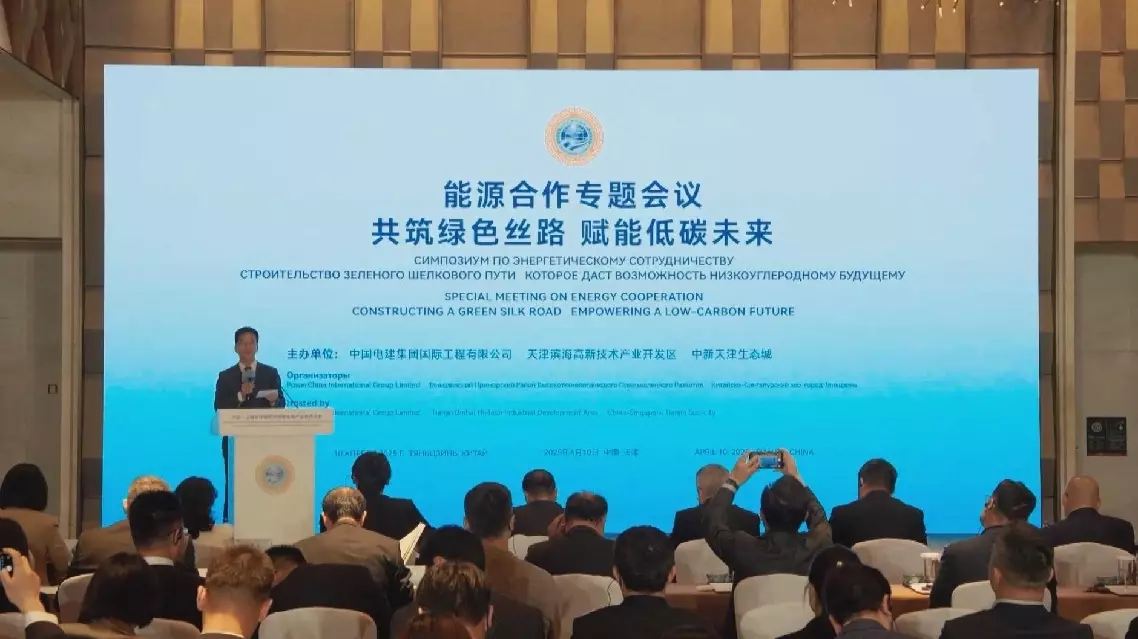
SCO sustainable development conference secures 18 projects involving nearly 4.8 bln yuan





